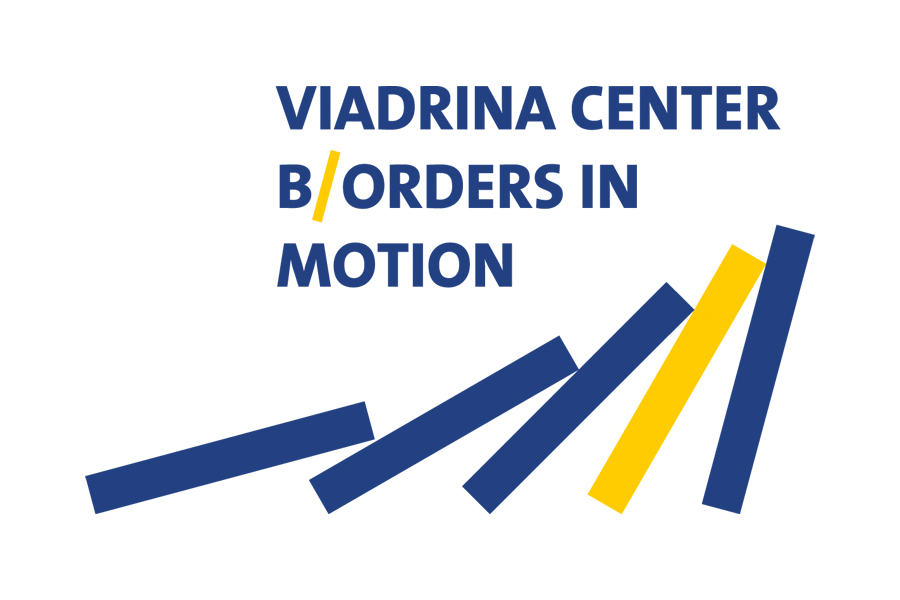A Still Divided Sky? Germany's East and West, thirty years after Reunification
text
Project lead:
- PD Dr Carolin Leutloff-Grandits (Senior Researcher, Viadrina Center B/ORDERS IN MOTION)
- Dr habil. Béatrice von Hirschhausen (Université de Paris 1 Panthéon-Sorbonne, Centre Marc Bloch)
- Dr Christophe Queva (Université de Paris 1 Panthéon-Sorbonne)
Funding institution:
Research training and cooperation project, funded by CIERA (Centre Interdisciplinary D'études Et De Recherches Sur L'allemagne)
Project duration:
01/2020 - 06/2022
Project description:
Publications:
- Leutloff-Grandits, Carolin/ von Hirschhausen, Béatrice / de Verdalle, Laure (Hg.) (2023): „Ein immer noch geteilter Himmel? Deutschlands Osten und Westen dreißig Jahre nach der Wiedervereinigung“ (in Vorbereitung).
- Leutloff-Grandits, Carolin / von Hirschhausen, Beatrice (2021): Vergemeinschaftung und ihre Schranken: Dörfliches Vereinsleben im ehemals deutsch-deutschen Grenzgebiet als Spiegel einer „Phantomgrenze“? In: Markus Böick, Constantin Goschler, Ralph Jessen (Hg.): Jahrbuch Deutsche Einheit. Christoph Links Verlag S.129-156, 2021.
Press coverage:
Report in the Viadrina logbook on field research in the project [in German]
The research training project "A Still Divided Sky? Germany's East and West, thirty years after Reunification" (" Un ciel toujours partagé? Sociétés et territoires allemands de l'Est et de l'Ouest, trente ans après la Réunification "), which is funded by CIERA, was based on a collaboration between researchers from the University of Paris 1, the Viadrina Center B/ORDERS IN MOTION of the European University Viadrina Frankfurt (Oder) and the Centre Marc Bloch in Berlin. Under the direction of Dr habil. Béatrice von Hirschhausen, PD Dr Carolin Leutloff-Grandits and Dr Christophe Quéva, postdoctoral researchers, doctoral students and Master's students in rural areas on both sides of the former German-German border examined the constitution of local East and West German societies 30 years after the fall of the Berlin Wall.
The project centred on an eight-day joint teaching research visit to four villages on the former German-German border (this was planned for March 2020, but was postponed to July 2020). In different teams, social anthropological, geographical, political science and cultural studies analyses were carried out, each based on the questions and methods of the individual subjects. During our teaching field research, academics and students from Frankfurt (Oder), Berlin and Paris lived with families for a week in order to observe everyday life and conduct interviews with various local actors and residents. In order to explore the influence of socially shaped perceptions on social, symbolic and cultural demarcations between East and West, we asked to what extent the former border continued to have an impact on people's everyday lives or even took on a new meaning. We took into account people's social positioning - their age, profession and gender, as well as their family situation - and asked to what extent the significance of the former German-German border was negotiated within local societies and intergenerationally.
With the selection of the field research sites, our investigations follow on from two doctoral theses from the 1990s: the ethnographic research by Daphne Berdahl (1999) in Kella (Thuringia) and the municipality of Meinhard (Hesse), as well as the study by Valentine Meunier (2001) in Gompertshausen (Thuringia) and Alsleben (Bavaria). These two socio-anthropological research projects deal with the social upheavals following the fall of the "Iron Curtain". At that time, not only the geographical location of the villages in the German-German border region changed fundamentally, but also the perceptions of their inhabitants. The two previous studies came to the conclusion that borders would now be "rededicated". For our teaching field research, the two doctoral theses offer the opportunity to give our current social analyses more historical depth by referring to the scientific findings and descriptions collected twenty to thirty years ago.
In addition to the field visit to the former German-German border, two workshops were held to prepare and follow up the research. The first workshop was held at the Centre Marc Bloch in Berlin in January 2020 in the run-up to the field visit and enabled the teams to take stock of the topic and start an interdisciplinary dialogue. Since then, there have been further preparatory meetings in the individual teams. The first workshop also provided an opportunity to concretise and organise the objectives of the field visit. The second workshop in September 2020, which followed the teaching field research, served to discuss the initial results within the project and to continue working on the analysis.
Project team:
Lecturers
Béatrice von Hirschhausen (CNRS/UMR Géographie-cités/Centre Marc Bloch)
Carolin Leutloff-Grandits (European University Viadrina Frankfurt (Oder))
Christophe Quéva (Université Paris 1/ UMR Géographie-cités)
Laure de Verdalle (CNRS/Centre Marc Bloch)
Valentine Meunier (freelance translator, ethnologist)
Post-doctoral researchers
Peter Ulrich (European University Viadrina, Frankfurt (Oder))
PhD students
Florian Grundmüller (European University Viadrina, Frankfurt (Oder))
Joséphine Lécuyer (Université Paris 1)
Aude Le Gallou (Université Paris 1)
Master's students
Johanna Balsam (European University Viadrina Frankfurt (Oder))
Julia Bantouvaki (European University Viadrina Frankfurt (Oder))
Ariane Blachier (Université Paris 1)
Claudia Jänichen (EuropeanUniversity Viadrina Frankfurt (Oder))
Eva Nierlander (Université Paris 1)
Christoph Scharf (European University Viadrina Frankfurt (Oder))
Hannah Voß (European University Viadrina Frankfurt (Oder))
The project is third-party funded by the Centre Interdisciplinaire d'études et de Recherches sur l'Allemagne (CIERA), which promotes scientific cooperation between France and Germany. CIERA is aimed at young researchers with a master's degree or higher as well as experienced researchers working on topics relating to Germany in the humanities and social sciences or dealing with issues related to the German-speaking world.
Concluding conference „Schatten der Einheit? Deutsch-deutsche Perspektiven nach dreißig Jahren Wiedervereinigung“
11-13 November 2020 at the Viadrina Center B/ORDERS IN MOTION
Conference program [in German]
Abstracts [in German]
